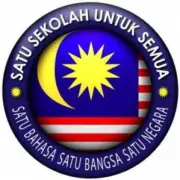There is truth in the cliche’ “Enemy of your enemy is my friend” when it comes to geo-political development when Japan gets together with Vietnam. It is obvious their aggregated over century of animosity with China is very strong.
BBC story:
1 August 2014 Last updated at 11:44
Japan gives Vietnam six navy ships amid regional tension
Japan’s Foreign Minister Fumio Kishida (left) and his Vietnamese counterpart Pham Binh Minh raise a toast after a signing ceremony at the Government Guesthouse in Hanoi on 1 August 2014Japan’s foreign minister Fumio Kishida (left) met with his Vietnamese counterpart Pham Binh Minh (right) in Hanoi
Continue reading the main storyJapan says it will give Vietnam six naval ships for patrols in the South China Sea, amid regional tension over competing maritime claims with China.
The offer, worth 500 million yen (£2.9 million, $5 million), was announced during a visit by Japanese Foreign Minister Fumio Kishida to Hanoi.
China angered Vietnam when it moved an oil rig to disputed waters in May, sparking deadly protests in Vietnam.
Japan and China both claim a string of islands known as Diaoyu or Senkaku.
The six boats are used vessels and will be accompanied by training and equipment to help coastguard and fisheries surveillance, Mr Kishida told reporters.
He also said that both Vietnam and Japan agree on “maintaining peace and stability” in regional waters, and disputes must be settled “in accordance with international law”.
Vietnam’s Thanh Nien News quoted China security policy expert Yun Sun as saying Japan’s gift could be seen as an “alignment of positions” with Vietnam that is “perceived as hostility by China”.
It comes after the Philippines, which is also locked in territorial disputes with China, signed a military pact with the United States in April to increase the latter’s troop presence in the country, a move which angered China.
A riot police officer stands guard outside the damaged Shining company building in Vietnam’s southern Binh Duong province on 16 May 2014
Vietnam saw three days of anti-China riots in May which left several factories damaged and at least two dead
This aerial shot taken on 15 September 2010 shows the disputed islands known as Senkaku in Japan and Diaoyu in China in the East China Sea
Both Japan and China lay claim to the chain of islands in the East China sea known as Senkaku or Diaoyu
China has repeatedly stressed that it prioritises regional stability and that it favours “peaceful development”.But such claims continue to be met with wariness by neighbouring countries given the rapid build-up of China’s presence in disputed waters in recent years.
The moving of the Haiyang Shiyou 981 rig to waters off the coast of Vietnam, near the disputed Paracel Islands, in May triggered a low point in China-Vietnam relations.
Anti-China riots broke out in Vietnam during which angry workers targeted foreign-owned factories in some areas, leaving at least two people dead and dozens injured. Several factories were burned down or damaged.
Government ships from China and Vietnam have clashed near the rig on several occasions, bumping and exchanging water cannon fire.
China eventually moved the rig away in July, a month earlier than planned.
Sino-Japan relations have also soured of late, due to the ongoing dispute over the Diaoyu or Senkaku islands in the East China Sea, with ships from both sides regularly confronting one another.
Japan has named five uninhabited isles in that chain. Releasing their names on Friday, the government said the move was meant to raise public awareness that they belong to Japan, according to news agencies.
************
The ganging-up against China, where United States and the Philippines saw the most populous nation with the largest armed forces personnel reacted aggressively in a geo-political military and diplomacy forum a few months ago.
Japan and Vietnam are nations in serious international diplomatic logger head against China on multiple claims of disputed territories.
Pro-actively arming Vietnam is Japan’s bold message that the land of rising sun is making prominence in regional military foray. Especially when it comes to China.
A few hours earlier, US Vice President Joe Biden praises Japan for revising its policy on military outside its role since her defeat of World War II, which would be exactly 69 years in two weeks time.
Associated Press story:
VP Biden Praises Japan’s New Military Policy
WASHINGTON — Jul 31, 2014, 9:26 PM ET
Associated Press
Vice President Joe Biden is welcoming Japan’s decision to loosen restrictions on its military to allow greater use of force to defend other countries.Biden spoke to Japanese Prime Minister Shinzo Abe (shin-zoh ah-bay) on Thursday. The White House says the two agreed that Japan’s policy will strengthen U.S.-Japanese ties and help Japan contribute more to regional peace and security.
Japan’s move has drawn criticism from rival China as Beijing increases its own military posture.
The White House says Biden also praised Japan’s sanctions on Russia. The U.S. and Europe are sanctioning Russia over its actions in Ukraine. Japan is part of the Group of Seven nations seeking to pressure Moscow.
The two leaders also discussed the nuclear threats from North Korea and Iran, plus conflicts in Iraq and Syria.
************
This should be seen as a direct escalation of opposition towards the post-China’s PLA Navy (PLAN) aggressive modernisation and arsenal building, first announced six years ago.
Under Prime Minister Shinto Abe, Japan moved towards ‘reinterpretation’ of post-World War II constitution with regards to her military as a ‘defence force’.
WSJ story:
Japan Policy Shift to Ease Restrictions on Military
Reinterpretation of Constitution Allows Military to Aid Allies Under Attack
By ALEXANDER MARTIN and TOKO SEKIGUCHI CONNECT
Updated July 1, 2014 12:02 p.m. ETJapanese Prime Minister Shinzo Abe speaks during a news conference at prime minister’s official residence in Tokyo on July 1. European Pressphoto Agency
TOKYO—Prime Minister Shinzo Abe said his decision to expand Japan’s military role would help keep the peace by deterring aggressors, but one of the nations being deterred—China—didn’t see it that way.
Mr. Abe’s cabinet approved a revised interpretation of the nation’s pacifist constitution that would ease long-standing restrictions on military activities outside Japanese territory. That will set up debates this fall as Japan’s parliament considers bills to flesh out Mr. Abe’s vision.
“The state of the world surrounding Japan is growing increasingly severe. To prepare for every possible scenario, it is necessary to take seamless legislative measures so we can protect the lives and peace of our people,” Mr. Abe said.
Japan’s Cabinet approved a controversial change to how the country’s pacifist constitution is interpreted. The WSJ’s Ramy Inocencio talks with Narushige Michishita at the National Graduate Institute in Tokyo on international reaction to the move.
The change would permit Japan to exercise the right of “collective self-defense,” meaning its Self-Defense Forces could come to the aid of allies such as the U.S. even if Japan itself isn’t attacked.Addressing voters at home, where the change is generally unpopular, Mr. Abe said his move would extend the peace that Japan has enjoyed since World War II by serving as a deterrent force.
China, however, has said Mr. Abe is trying to destabilize the region and return Japan to its militarist past.
“It is only natural to wonder whether Japan is going to change the path of peaceful development it has been pursuing since World War II,” said foreign-ministry spokesman Hong Lei on Tuesday in Beijing.
Japan and China are feuding over a small archipelago in the East China Sea. During his visit to Japan this week, President Obama stirred up the pot. Simon Constable explains why you should care.
Mr. Hong accused the Abe government of “stirring up trouble on historical issues” and called on Tokyo to respect China’s sovereignty and security concerns.Washington has welcomed the changes. On a visit to Tokyo in April, President Barack Obama cited dangers from North Korean provocations and said, “This is one of the reasons why the [U.S.-Japan] alliance is so important and collective self-defense is so important.”
On Tuesday, Defense Secretary Chuck Hagel said the move would allow Japan to “engage in a wider range of operations, and make the U.S.-Japan alliance even more effective.”
The Pentagon said it didn’t expect the change in Japan’s military role to exacerbate tensions in the region.
“We find it very, very helpful and there’s no reason from our perspective to believe or to worry that it will make tensions worse,” Rear Adm. John Kirby said. “Quite the contrary, we think it will help with security and stability in the region.”
More
Demonstrators Challenge Abe’s Move on Japan’s Constitution
New Interpretation
Article 9 of Japan’s constitution states that its people “forever renounce war as a sovereign right of the nation and the threat or use of force as means of settling international disputes.“In order to accomplish the aim of the preceding paragraph, land, sea, and air forces, as well as other war potential, will never be maintained.”
Current interpretation: Japan can maintain military forces purely for self-defense.
New interpretation: Japan can exercise the right of “collective self-defense,” meaning it could come to the aid of allies even if Japanese territory isn’t under direct attack.
Implications
The change could allow Japanese forces to:Help rescue Japanese citizens fleeing a war zone on an American ship
Clear sea mines in sea lanes away from Japan
Shoot down a missile aimed at an ally flying over or near Japanese territory, even if the missile isn’t aimed at Japan and doesn’t directly threaten Japanese safety.
Source: WSJ reportingWhile the symbolic effect of Mr. Abe’s move is immediate, the practical military impact still needs to be hashed out in Japan’s parliament and between Tokyo and Washington.
South Korea, which like Japan is a close U.S. ally, didn’t directly criticize the move but made clear its uneasiness.
“Any issues that affect the security of the Korean peninsula and national benefit in regard to Japan’s practice of right of collective self-defense cannot be approved without our request and agreement,” foreign-ministry spokesman Noh Kwang-Il said.
Mr. Abe’s plans have generally been welcomed by Southeast Asian nations, in particular the Philippines and Vietnam, which are locked in territorial disputes with China.
Mr. Abe, who is facing declining poll ratings over the defense issue, frequently referred to his commitment to uphold Japan’s constitutional renunciation of war.
The change drew rare crowds of demonstrators outside the prime minister’s office. “It’s obvious that if we fight wars overseas, the Japanese will be seen as enemies by people we thought we had little to do with, and we will become targets of attacks,” said Mayu Ushio, 27 years old, who works as a caregiver.
Mr. Abe and his aides have described several scenarios in which Japan’s military restrictions could hobble its security. In one, a nation like North Korea might fire missiles at U.S. ships or bases in the western Pacific U.S. territory of Guam.
The new constitutional interpretation could allow Japan to shoot down those missiles even if Japan isn’t directly targeted. Mr. Abe also says Japanese troops should be able to assist the nation’s citizens fleeing war zones. It is also possible Japanese ships could be sent outside Japan’s waters to clear mines.
Mr. Abe said he would submit specific bills to parliament laying out how Japan would exercise its collective self-defense rights. Passage of such legislation is likely because Mr. Abe’s ruling coalition controls both houses of parliament.The document approved Tuesday was itself the product of tough negotiations in which Mr. Abe’s pacifist-leaning coalition partner, the New Komeito party, won changes to make clear that Japan’s own security must be seriously threatened before it goes to battle on behalf of allies.
The U.S. and Japan are negotiating new defense guidelines with a goal of reaching agreement on the end of the year. Japanese Defense Minister Itsunori Onodera is set to meet next week with Mr. Hagel to discuss the guidelines.
American officials expect the Japanese decision to make it much easier for Japan to help the U.S. military on everything from refueling ships in the Indian Ocean and protecting them from potential missile threats in the region.
“We do see this as adding a lot of flexibility to oncoming challenges, both in Northeast Asia and around the world,” said one senior administration official.
Japan’s budget for the current fiscal year, which ends in March 2015, calls for defense spending of about 4.78 trillion yen, or about $47 billion, up 2.2% from a year earlier. Tuesday’s decision isn’t expected to lead to immediate changes in the budget.
—Dion Nissenbaum in Washington, Paul Mozur in Beijing, and Min Sun Lee in Seoul contributed to this article.
**************
Although these patrol boats ‘gift’ from Japan to Vietnam is not really substantiative, an adverse reaction from China is expected.










